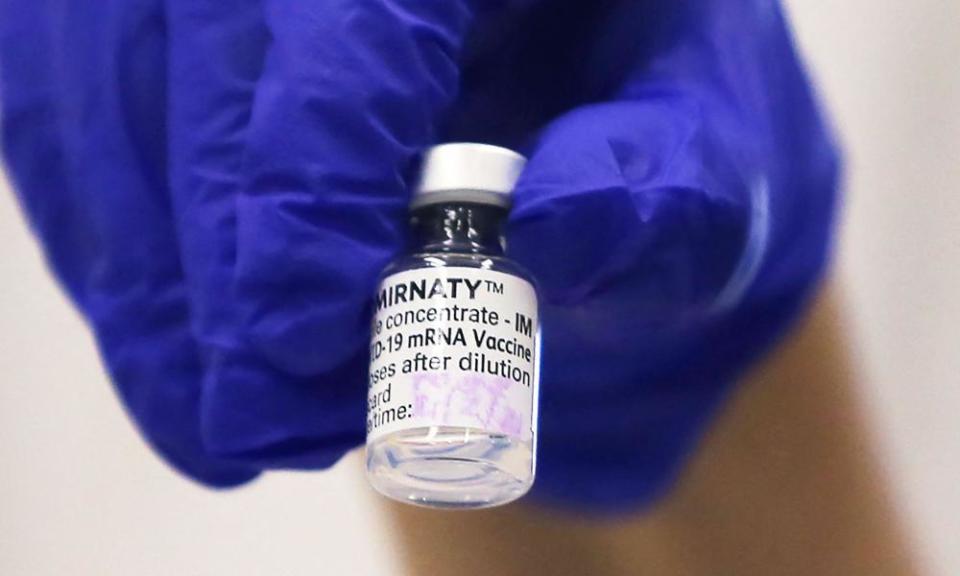Australian doctors urged to be patient and flexible in Covid vaccine rollout

Peak doctors’ bodies have urged GPs to be patient and to be “flexible and understanding” as the federal government continues the national rollout of the Covid-19 vaccines.
The head of the Australian Medical Association, Dr Omar Khorshid, said GPs had been briefed about phase 1b of the vaccines rollout, which will include adults aged 70 years to 89 years, healthcare workers, Indigenous Australians with an underlying medical condition, and critical and high risk workers.
Khorshid said phase 1b had changed slightly in structure.
Initially the health department wanted a small number of GP clinics performing a large number of vaccinations.
“Our view was that would be difficult as they would have to effectively start up another practice solely focused on vaccinating patients, registering new patients and all sorts of administrative tasks that take time and cost money,” Khorshid said.
“The whole thing wasn’t targeted right and we said basing this rollout as much as possible in usual general practice is the way to go, to existing patients.”
He said some 5,000 general practices had applied to be Covid-19 vaccine administering sites, which was more than anticipated.
More than 4,500 of these had been chosen to participate.
“It made sense to use as many of those practices as possible,” Khorshid said.
But he said some GP clinics were “unhappy” they were not getting as much vaccine as anticipated, claiming the small allocation meant it was not worth them being involved.
The New South Wales health minister, Brad Hazzard, told Nine Media he had received numerous complaints from GPs.
While understanding the concerns raised, Khorshid said it made sense to use general practitioners’ existing relationships with patients, rather than creating a new structure.
“We certainly support the direction the government has gone in,” he said.
“We are hoping that as production increases they’ll be able to provide more doses to each practice. I think the health minister Greg Hunt is absolutely committed to delivering this program. Normally this kind of program would take an awful lot of planning and we’re doing everything very quickly.
“That means being a little bit flexible and understanding.”
The president of the Royal College of General Practitioners, Dr Karen Price, said the rollout was “an historic and logistically challenging project, and GPs across the country are honoured to contribute, and committed to ensuring that all eligible patients have access to the vaccine no matter where they live”.
“We already have the trust of our patients and our communities and can ensure that those who are ready to be vaccinated can be,” she said. “Those who are unsure can have their questions answered to help them decide.”
More than 1,000 general practices will begin vaccinations from the week of 22 March, with a rapid scale-up over the following four weeks.
“This will ensure an efficient and equitable distribution of vaccines across the country,” said the federal health minister, Greg Hunt.

 Yahoo Finance
Yahoo Finance 